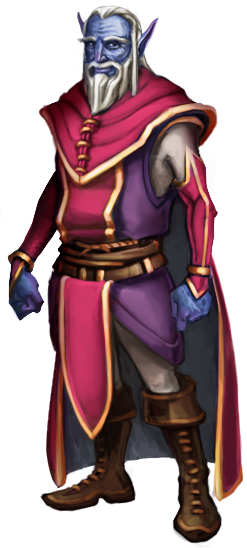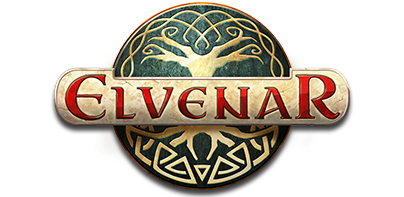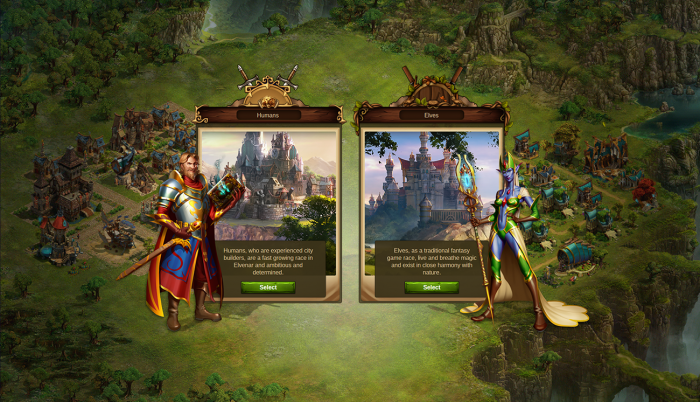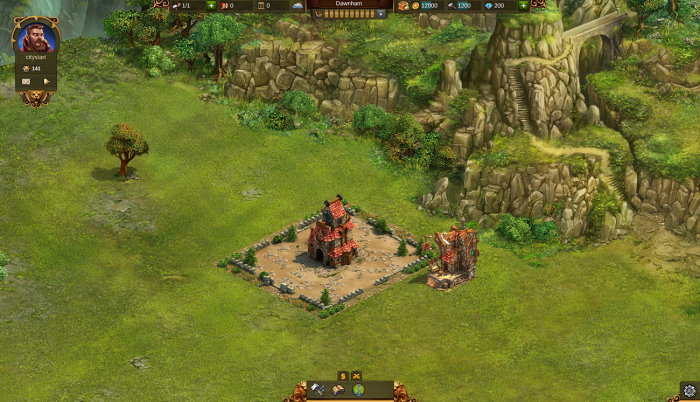Basics: mudanças entre as edições
| Linha 39: | Linha 39: | ||
*Suprimentos: Para produzir Suprimentos você precisa ordenar as [[Workshop|Oficinas]]. Cada tipo de produção requer um período de tempo diferente. | *Suprimentos: Para produzir Suprimentos você precisa ordenar as [[Workshop|Oficinas]]. Cada tipo de produção requer um período de tempo diferente. | ||
=== | === Primeiros passos === | ||
[[File:mentor_elves.png|right|link=]] | [[File:mentor_elves.png|right|link=]] | ||
Inicialmente, você precisa saber de 3 (três) coisas: | |||
Primeiro, '''nãos e pode ter uma cidade sem habitantes (população)'''. | |||
When you start building up your town, you should build a couple of Residences first. They ensure you have available population and generate Coins income. Most buildings you will want to build require inhabitants who can work in those buildings, and the construction costs consist mostly of Coins, which your Residences will generate. It is recommended you build at least eight Residences at the beginning. They are cheap and constructed in no time. Just don’t forget to connect them to the Main Hall using streets. | When you start building up your town, you should build a couple of Residences first. They ensure you have available population and generate Coins income. Most buildings you will want to build require inhabitants who can work in those buildings, and the construction costs consist mostly of Coins, which your Residences will generate. It is recommended you build at least eight Residences at the beginning. They are cheap and constructed in no time. Just don’t forget to connect them to the Main Hall using streets. | ||
Segundo, '''você precisa produzir suprimentos assim que tiver construido as Residências.''' | |||
They are a very valuable resource used to construct certain buildings, and later also to produce Goods and to train your battle units. Supplies can be produced in Workshops, so it is recommended you build at least three of these as soon as you have a few Residences. With enough Coins and Supplies, your core economy is already in place and running smoothly. | They are a very valuable resource used to construct certain buildings, and later also to produce Goods and to train your battle units. Supplies can be produced in Workshops, so it is recommended you build at least three of these as soon as you have a few Residences. With enough Coins and Supplies, your core economy is already in place and running smoothly. | ||
E terceiro, '''você vai precisar de [[Culture|Edifícios Culturais]] na sua cidade.''' | |||
This will allow you to upgrade other buildings and keep your population producing at maximum efficiency. Your city space is limited and always will be. So, upgrading buildings to improve their properties is key to make the most out of the space you have available. To upgrade, you will need many Coins and Supplies as well as inhabitants and [[Culture|Culture]]. Therefore, In order to advance your town, always make sure you have an adequate Culture surplus. | |||
If you have more available [[Culture|Culture]] than required for upgrades, your citizens will be happier and will produce more efficiently. To a certain extent, this will be the cheapest way to earn more Coins and Supplies. Just don’t overdo it! It doesn’t make sense to have a town full of [[Culture|Cultural Buildings]] but no [[Residence|Residences]] to live in. | If you have more available [[Culture|Culture]] than required for upgrades, your citizens will be happier and will produce more efficiently. To a certain extent, this will be the cheapest way to earn more Coins and Supplies. Just don’t overdo it! It doesn’t make sense to have a town full of [[Culture|Cultural Buildings]] but no [[Residence|Residences]] to live in. | ||
Edição das 16h41min de 22 de abril de 2015
Raças
Assim que registrar uma conta e fazer login no mundo (servidor do jogo), você terá de escolher se irá jogar como Elfo ou como Humano.
A jogabilidade de ambas as raças será muito semelhante, mas a sua escolha vai influenciar em algumas características principais:
- A aparência da sua cidade irá depender da raça que você escolher. Elfos são seres mágicos, e vivem em harmonia com a natureza. Seu projeto de construção vai ser muito sofisticado. Os Humanos são muito ambiciosos e determinados, isso significa que têm um estilo mais medieval e industrializado.
- As unidades militares que você tem ao seu dispôr também serão diferentes. Por exemplo, Elfos contam, entre outros, com os Treants e os Humanos com os Bárbaros.
Caso deseje, poderá jogar com a outra raça após iniciar em outro mundo.
Mapa da Cidade
No início, você começa com uma área limitada para construir sua cidade. O mapa da cidade é uma área dividida em quadrinhos disposto em forma de grade onde você pode colocar seus primeiros edifícios, a fim de iniciar o desenvolvimento da sua cidade. Você vai começar com uma área de 15x10 quadrinhos.
Claro que seu objetivo é expandir e seu maior desafio é fazer o melhor do espaço à sua disposição. Para aumentar a sua área disponível, você pode desbloquear Expansões na Árvore de Tecnologia, obtê-las resolvendo encontros em uma província, ou comprando Expansão Premium com Diamantes. Cada Expansão da Cidade tem um tamanho de 25 quadrinhos ou 5x5.
Ainda no início, você já encontrará dois edifícios na cidade: A Prefeitura e a Cabana dos trabalhadores.
- A Prefeitura é o centro da sua cidade e funciona também como estoque. A maioria dos edifícios precisam ser conectados por ruas à Prefeitura para que funcionem.
- Na Cabana dos trabalhadores você vai encontrar seus Trabalhadores. Eles vão ajudá-lo a construir e modernizar os edifícios e também gerenciar suas construções atuais.
Recursos Básicos
Há dois recursos básicos em Elvenar, que irão ajudá-lo a desenvolver sua cidade:
- Moedas: As moedas são produzidas automaticamente ao longo do tempo a partir das Residências.
- Suprimentos: Para produzir Suprimentos você precisa ordenar as Oficinas. Cada tipo de produção requer um período de tempo diferente.
Primeiros passos

Inicialmente, você precisa saber de 3 (três) coisas:
Primeiro, nãos e pode ter uma cidade sem habitantes (população). When you start building up your town, you should build a couple of Residences first. They ensure you have available population and generate Coins income. Most buildings you will want to build require inhabitants who can work in those buildings, and the construction costs consist mostly of Coins, which your Residences will generate. It is recommended you build at least eight Residences at the beginning. They are cheap and constructed in no time. Just don’t forget to connect them to the Main Hall using streets.
Segundo, você precisa produzir suprimentos assim que tiver construido as Residências. They are a very valuable resource used to construct certain buildings, and later also to produce Goods and to train your battle units. Supplies can be produced in Workshops, so it is recommended you build at least three of these as soon as you have a few Residences. With enough Coins and Supplies, your core economy is already in place and running smoothly.
E terceiro, você vai precisar de Edifícios Culturais na sua cidade. This will allow you to upgrade other buildings and keep your population producing at maximum efficiency. Your city space is limited and always will be. So, upgrading buildings to improve their properties is key to make the most out of the space you have available. To upgrade, you will need many Coins and Supplies as well as inhabitants and Culture. Therefore, In order to advance your town, always make sure you have an adequate Culture surplus.
If you have more available Culture than required for upgrades, your citizens will be happier and will produce more efficiently. To a certain extent, this will be the cheapest way to earn more Coins and Supplies. Just don’t overdo it! It doesn’t make sense to have a town full of Cultural Buildings but no Residences to live in.
Now that your city is flourishing, it is a good time to go onto the World Map where you can scout a few Provinces and start collecting Relics. Relics will become useful very soon. Every time you receive a Relic, you will also receive a “Knowledge Point”. Don’t forget to spend those points regularly in the Research Tree. This will unlock new buildings and other things that will help your city to progress.
And one last bit of advice for beginners: Listen to your advisors! If you complete quests regularly, you will be generously rewarded, and it will be easy for you to proceed and advance in the game.


